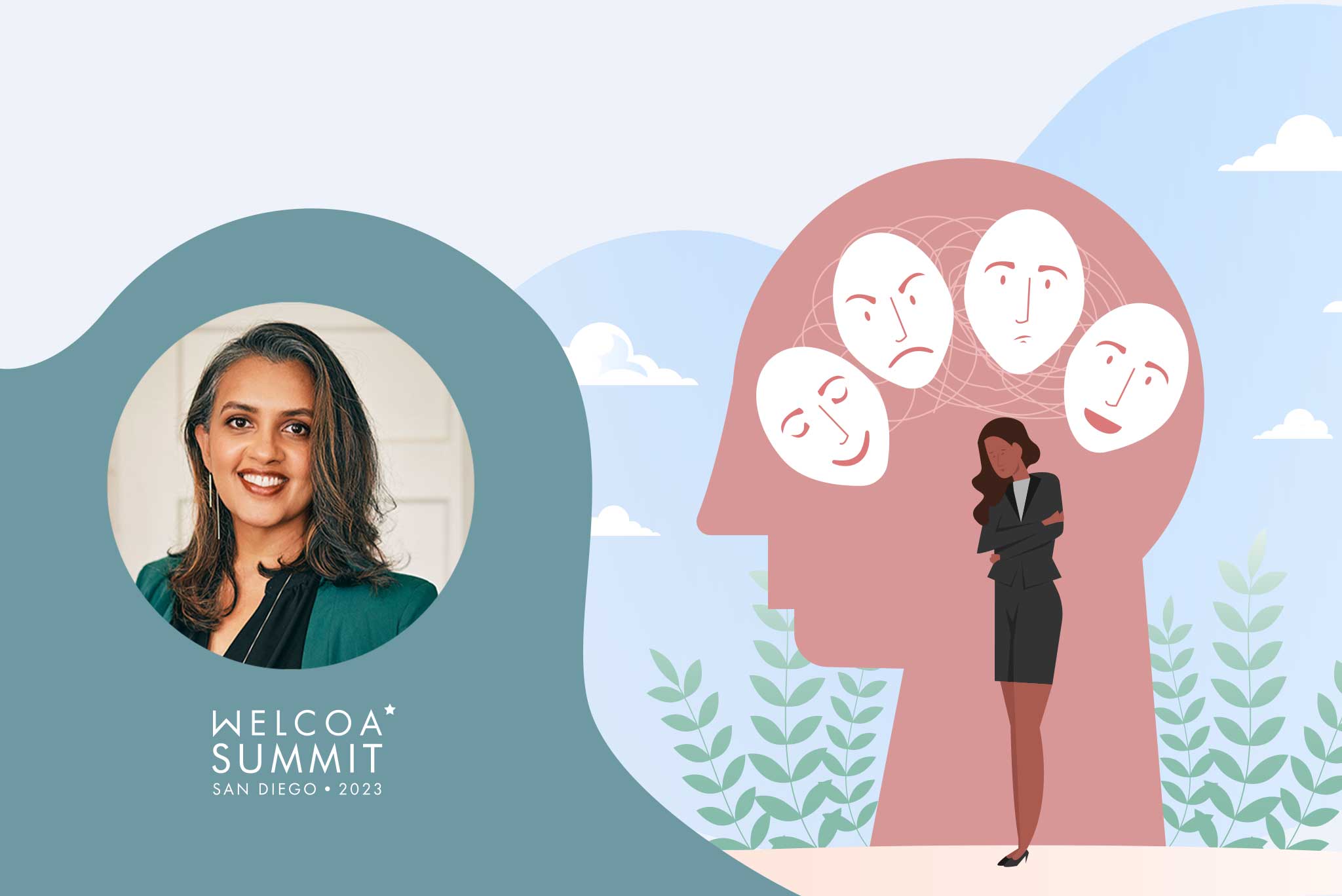During the COVID-19 pandemic, people spent a lot of time isolated and indoors, which helped foster an environment where some people now feel lonelier than ever. The result is a loss of social connectedness—the degree to which people feel the social connections and relationships in their lives to satisfy their wants and needs. When social…
Your Welcoa membership has expired.
Can We (Please) Move Beyond Imposter Syndrome?
Imposter syndrome, head trash, call it what you will, most people at some point, if not many times over the course of their careers, feel a sense of self-doubt, insecurity, and possibly even, powerlessness. In my experience, a colleague will share “Well, this is just my imposter syndrome, what can I do?” And they’ll be met with sympathetic nods and supportive musings, and the conversation moves on. But what happens when this colleague is a leader in the organization? They’re doing something they’ve never done before. And we’ll just leave it at “imposter syndrome”? 🤔
While it’s crucial to address one’s self-doubt, slapping the label “imposter syndrome” on it might not be the best approach. Here’s why:
- Firstly, the concept of “imposter syndrome” inherently pathologizes normal feelings of self-doubt and fear of failure. These emotions are universal; all of us have moments where we question our abilities and feel nervous about meeting expectations. Such feelings are not signs of a ‘syndrome’, but rather typical responses to new, challenging experiences. Labeling these responses as a syndrome may lead to unnecessary medicalization of normal human emotions and make it difficult to be present with what’s going on.
- Imposter Phenomenon was first identified in a 1978 study on high-achieving women by psychologists Pauline Rose Clance and Suzanne Imes. The authors noted: “Despite outstanding academic and professional accomplishments, women who experience the ‘imposter phenomenon’ persist in believing that they are really not bright and have fooled anyone who thinks otherwise.” They also noted it disproportionately affects high-achieving people, who find it difficult to accept their accomplishments.
- But, in the 1970’s we weren’t talking about bias, discrimination, and harassment the way we do now. These groundbreaking first women in the workplace had to develop some sort of coping mechanisms to adapt to potentially hostile environments.
- And as noted by Ruchika Tulshyan and Jodie-Ann Burey in Harvard Business Review, “Imposter syndrome puts the blame on individuals, without accounting for the historical and cultural contexts that are foundational to how it manifests in both women of color and white women. Imposter syndrome directs our view toward fixing women at work instead of fixing the places where women work.”
“Imposter Syndrome,” in everyday conversation, has shifted from being a description of a phenomenon in the outside world to a description of an internal experience of doubt, fear, or insecurity, and in effect, becoming part of one’s self-concept and identity. And, rarely – if ever – is the internal monologue of doubt true.
It’s not the imposter syndrome itself that is problematic, it’s the consequences of it—it’s the things we don’t do as our reaction. As an executive coach, manager, and leader, I’ve seen this dynamic play out in so many different ways—and uncovered simple tools that help “fix” imposter syndrome for good. Not to say you won’t feel self-doubt in the future, you will—and you’ll also have clear action steps on what to do when it does.
Ready to join us?
Register today!Learn more

Meghna takes a special interest in coaching “first” and “only” executives, eg. the first from their family/community or the only one like them in the room, supporting these leaders to effectively blaze a trail through uncharted personal and professional territory.
Meghna has a BA magna cum laude from Harvard University, an MPH from the University of Cape Town, and an MBA from UC-Berkeley’s Haas School of Business.




